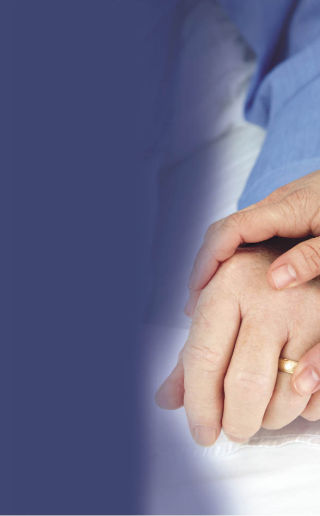We all know death is inevitable. But facing our own mortality or the death of a loved one brings up emotions that can be difficult to deal with. Grief is the healing process that allows us to adjust to the change or loss in our lives.
There are several emotional stages of grief. These include:
Denial: When the reality of death is overwhelming, denial often occurs. If you or someone you know is dying, it takes time for the full impact of the situation to sink in and become real. Initial denial is healthy and a way of delaying the shock.
Anger: Expressing anger when faced with death is a normal, healthy part of the grieving process.
Bargaining: It’s perfectly natural for some people to bargain with God. They may make promises to do something in exchange for a longer life or the chance to see another birthday or holiday. Bargaining is like a temporary truce.
Depression: Depression comes with the full understanding of what’s happening, when you fully face the death and feel the loss.
Acceptance: In this stage comes peace. Acceptance is coming to terms with the death. You may feel what’s done is done.
Although the emotional stages of grief may be similar to most people, the overall experience of grief will likely be unique, if not life-changing, for each person. Some individuals experience complicated grief that requires special care provided by experts trained in grief and loss counseling. There is no universal timetable for bereavement. Each person will grieve in his or her own way. Also:
Take as much time as you need to grieve. Reminisce with friends and loved ones. Look through old photographs, listen to nostalgic music, read old letters.
Let yourself cry. Crying is an excellent release and there’s nothing shameful about it.
Talk about your feelings of grief. Find friends or relatives who are sympathetic listeners. Avoid those who tell you to “snap out of it.”
Be aware that the people around you may feel uncomfortable about mentioning your loss. Let them know it’s all right to talk about it.
I also encourage individuals to consider in-home or inpatient hospice care for a loved one who is terminally ill and has six months or less to live. Hospice care is compassionate, supportive care. The Franciscan Health System, which includes Enumclaw Regional Hospital, is the largest provider of in-home and inpatient hospice care in the state.
Our commitment to our hospice patients is to make possible the remaining quality of life that is envisioned by our patients and their loved ones. This includes managing pain and symptoms, coordinating care services and providing emotional and spiritual support. We also provide bereavement support for families for a year following the death of their loved one.
We also serve patients diagnosed with a life-threatening illness but who are not yet eligible for hospice. This service, called Franciscan Palliative Care Outreach, is a recipient of the American Hospital Association’s prestigious Circle of Life Award.
The end of life brings overwhelming changes and difficult decisions. At Franciscan Health System, we believe that no individual, nor family, should go through such a difficult time alone.
For more information about our hospice services, please call us toll-free at 1-800-338-8305.
About the writer: Dr. Mimi Pattison is medical director of Hospice and Palliative Care at the Franciscan Health System. The organization, which includes Enumclaw Regional Hospital and Enumclaw Medical Center, is guided by the ethical and religious directives for Catholic Health Care Services. Franciscan Health System does not participate in, nor facilitate, physician-assisted suicide.


